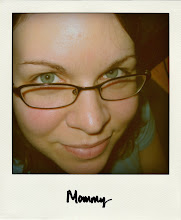"...there are some more interesting lessons to be learned from Second Life...than the obvious one: that it’s much easier to send out a press release about your trendy online marketing strategy than to come up with a strategy that really works."
- excerpt from the article "Marketers twittering, but not about Second Life", published in the New York Times on July 16, 2007
Substitute all of the marketing terms above for educational terms, and you'll easily understand the basic gist of my blog post this week. As you all know, for our hands-on in class we visited Second Life and milled around in there for a while. It was a very interesting experiment for all of us (I believe), and it completely confirmed all of my previous opinions about the usefulness of Second Life in the FL classroom. Dr. Lord made a comment at the beginning of the class about how the Sims had started out as a positive virtual reality world but then it quickly degenerated into a seedy world filled with drug dealers and prostitutes. We all chuckled at that comment, but then before our 30 minute session was over, we were collectively assaulting random members and passing mega-joints. Of course, we weren't actually trying to do anything valuable, but it just goes to show you...
The experiment in class was fun and we all laughed a lot, but I'm not quite sure how applicable it could be to a foreign language classroom, and to the learning experience. Some of the positive things about Second Life are that it allows more advanced body clues than simple text chat (via gestures) and it also gives you some sort of visual image to respond to, albeit completely invented by the owner of the avatar. Another positive thing is that it could potentially give the students access to native speakers of the target language...although this point can also be rendered negative, in the sense that the restriction on scope of the topic, and how germane it is to foreign langauge education, is severely limited. Also extremely relevant to mention is the fact that the target audience for Second Life is somewhere in their 40s, and this clearly does not match up with the general ages of our students.
If you read the NY Times article I linked to above (which is very interesting), you will see that we are not alone in trying to find the link between these technological tools and our field. It appears that many people, in fields ranging from education to marketing, are struggling to find out what is making this tool so popular (apparently), and how we can manipulate it to serve us in our professional endeavors. That being said, I think it should most definitely be noted that these tools (Second Life especially) are inherently meant for entertainment and leisure, which may be exactly the reason that we are finding it difficult to establish a link between the two worlds. I think this statement can be generalized to include many other tech tools that we've mentioned: cell phones, PDAs, Twitter, podcasts, etc.
As academics, we seem to have this ritualistic problem of trying to extend our investigative rigour into every area of not only our own lives, but the lives of everyone else as well, and I think that this is one of the things that compels us to try and usurp all of the world's resources into our particular field of research. I don't necessarily think this is appropriate. Although Second Life does have particularly interesting implications, I think we are better off dedicating our time to investigating what we can do to better the more permanent aspects of FL Pedagogy. To be completely honest, I have sincere doubts about the real use of virtual reality tools, although I will concede that it may be simply that we are getting ahead of ourselves with research...in other words, the real 'advent' of Second Life may still be yet to come.
Taking all of these ideas into consideration, I think it is in our best interest that we not spend our time and efforts in this FIRST life on trying to discover the usefulness of Second Life, but rather on attempting to better ourselves and those in our field as educators.
04 April 2008
Subscribe to:
Post Comments (Atom)


2 comments:
I find your statement interesting, specially because you make some potential pros and cons explicit.
However, I still wonder why a solid justification is not given, rather than "una de cal y otra de arena" -specially, when most of us, if not wrong, were experiencing SL for the first time.
Would you not consider an island like "El Instituto Cervantes" suitable for your students?
How do you explain that "to be completely honest, I have sincere doubts about the real use of virtual reality tools" and later on "a real 'advent' of Second Life may still be yet to come"?
Francisco is a good commenter. I was just criticized in my other class for not making my comments more challenging. I guess I'm not in the mood to ruffle people's feathers lately. :)
I never got the chance to check out Cervantes Institute island or anything like that. So I'm still unsure what can be accomplished right now in SL. I do feel like it's more about the potential and it's not exactly something to integrate into the curriculum right now.
Post a Comment